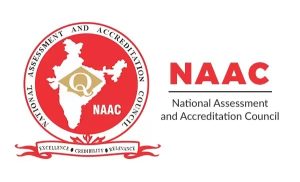NAAC Institutional Distinctiveness
The National Law University Delhi was established in 2008 by Act No. 1 of 2008 with the goal of advancing and disseminating a complete, multidisciplinary, and socially relevant legal education. It has sought to do so by encouraging faculty members to engage in active and high-quality research, in the belief that the principles of teaching and research are mutually reinforcing. As a result, National Law University Delhi has developed a strong research environment that interacts with and directly contributes to the development of law and policy in a variety of fields, both nationally and internationally. It believes that its institutional distinctiveness is its inter-disciplinary, research-driven approach to legal education, which is one of a kind in India.
Numerous initiatives have been taken to establish research as NLUD’s institutional distinctiveness. First, the University has established 22 research centres and set up five endowment chairs to promote and undertake path-breaking research. Each of these focuses on creative research methods and avenues across a spectrum of legal problems including the death penalty, crimes against women and gender justice, access to justice for the marginalized, juvenile justice, corporate governance, open access to resources, etc. These research projects have yielded significant results in the form of release of incarcerated death row inmates, contribution to discussions on open access to resources, mainstreaming of mental health concerns of prisoners, the inclusion of victim jurisprudence within criminal law and policy discussions, regulating impact assessments securing of access to justice through right to information, working closely with marginalised and vulnerable sections of the society to secure their access to governmental programmes, to name a few.
Second, the research endevours of the University actively promote and include students in all stages of the research, including field work. Student participation in diverse research projects helps young aspiring lawyers to think critically, become well-versed in legal concepts, and perceive and practice law from a holistic viewpoint. Students benefit greatly from such engagement because they get a first-hand insight of the real-life issues and challenges encountered in the implementation of law, especially by the marginalised groups in society. It also helps them to comprehend and critically interact with the workings of the law, as well as providing them with a substantive method of bringing about real change through the use of law as a social tool.
Third, NLUD has strengthened its academic, research, and industry collaborations consistently over the years. These collaborations have resulted in cutting-edge research and innovative outcomes such as the IP Startups project that is expected to contribute substantially to the innovation landscape in India by highlighting the relevance of IP for startups in India and the development of the L2Pro IP e-learning Platform. It’s recent signing of MoU with IIT Delhi and IISc Bangalore will promote inter-disciplinary research of law, technology, copyright law, and scholarly publications through joint seminars, certificate courses, and research projects. NLUD has also entered into collaborations with international and national academic institutions to facilitate the exchange of faculty and students. Currently, NLUD publishes three high-quality academic journals.
And last, the University is committed to enabling and fostering an environment suitable for furthering research endevours. It does so by providing access to resources including both online and offline resources. The library subscribes to every prominent database like SCC Online, Manupatra, Hein Online, JStor, Kluwer Arbitration, lexis Advanced as well as blogs including LiveLaw. Further, different journals, magazines, books, and other resources are provided both in the offline and online mode. These resources are available to the students even remotely, through the facility of Remotexs, an indispensable tool during the COVID-19 pandemic. The users of the library can access library digital resources even when they are not in Campus through Digital Access Portal. The Digital Access Portal is designed to access all the digital resources outside of the university campus from anywhere in the world through remote access login. Library also designed and implemented Newspaper clippings portal/software which facilitates access of subject wise newspaper clippings.
The University’s goal is to develop and deliver a complete and multidisciplinary legal education that promotes legal and ethical principles through research driven and socially relevant pedagogy. The University’s primary mission is to promote research though its legal education in order to yield lawyers who are professionally competent, technically sound, and socially relevant, and who will be prepared to not only practice law in courtrooms, but also to address the challenges of the new millennium and uphold constitutional values. In that endeavour, NLUD students are encouraged to partake in co-curricular activities to nurture their research and practical skills. Out students have continuously made us proud by bringing numerous accolades in national and international moots courts, ADR, essay writing and other competitions. Their drive to pursue socially impactful careers is also evidenced by the high number of successful students clearing civil services and judiciary examinations, undertaking higher education and prestigious research projects and scholarships.




